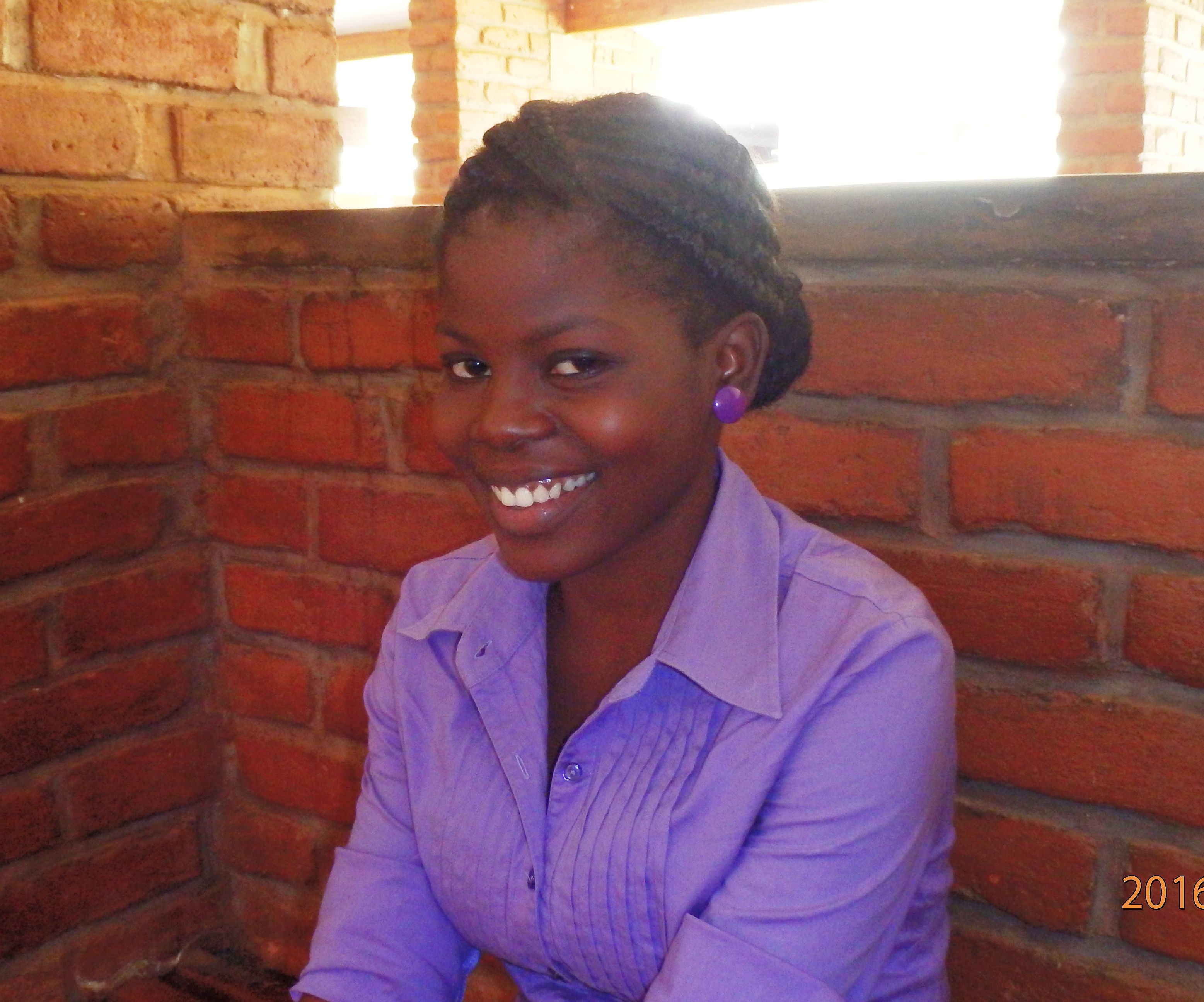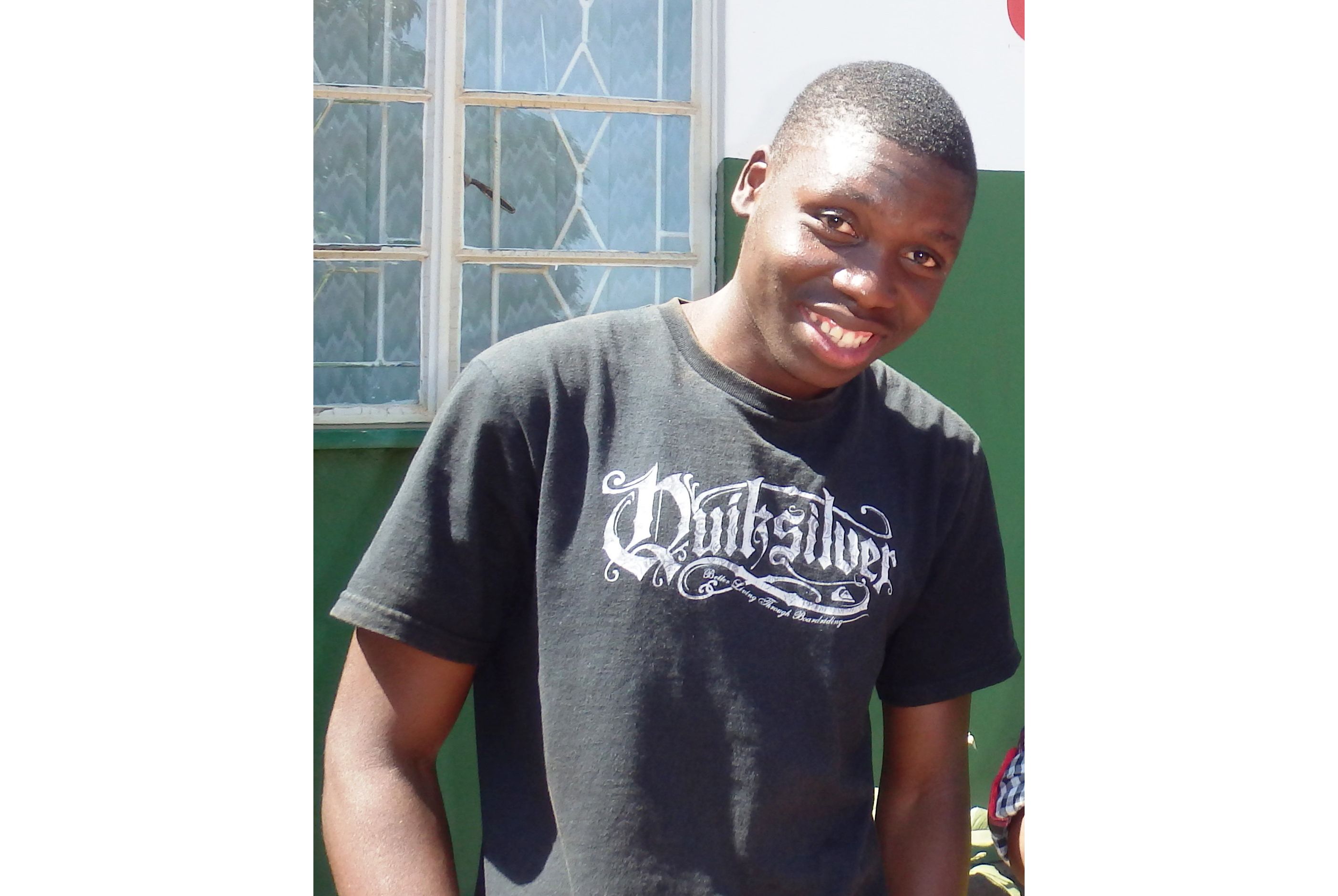September 30, 2016 | Pulitzer Center
By
Jennifer Stephens
As the world sprints to end AIDS and the spotlight shines on successful prevention of mother-to-child HIV transmission programs, young people born with the disease but never told by their guardians are coming to terms with the disease—and living fulfilling lives. Here are the stories of some of these young heroes in Malawi.

![Violet Banda found out she was HIV positive at age 14 when living with her aunt. “I had been taking pills my whole life which I was told were for energy. My aunt always told me I couldn’t read the doctor’s file. One day my aunt couldn’t come with me [to the clinic]. I read it [my diagnosis] in the hospital file. It was very difficult.” Now 24 years old, Violet is the chair of the board for the National Association of Young People Living with HIV in Malawi. For young people living with HIV, “the key is school,” including help with books, uniforms, or fees, she says. “You cannot change my life, but you can change the life of someone else.” Image by Jen Stephens. Malawi, 2016. Young hero Violet Banda. Image by Jen Stephens. Malawi, 2016. Violet Banda found out she was HIV positive at age 14 when living with her aunt. “I had been taking pills my whole life which I was told were for energy. My aunt always told me I couldn’t read the doctor’s file. One day my aunt couldn’t come with me [to the clinic]. I read it [my diagnosis] in the hospital file. It was very difficult.” Now 24 years old, Violet is the Chairperson of the Board for the National Association of Young People L](https://legacy.pulitzercenter.org/sites/default/files/styles/node_images_768x510/public/08-29-16/violet.jpg?itok=vVPqNPzi)
![At age 12, Phalyce Jailos found out she was HIV-positive. “I was taking medicine every day but my mom didn’t tell me. I overheard it [HIV positive status] at the hospital. I stopped going to school because I thought everyone knew. The neighbor told her kids not to come to my house to play. I thought I shouldn’t live. I took a full bottle of my medicine and began to vomit and suffocate.” An HIV-positive nurse disclosed her HIV status to help Phalyce: “She was a guardian angel.” Now 18 years old, Phalyce is a member of Nzotheka Support Group in Lilongwe. She says, “the group is very important…we fight for the rights of each other.” Image by Jen Stephens. Malawi, 2016. Young hero Phalyce Jailos. Image by Jen Stephens. Malawi, 2016. At age 12, Phalyce Jailos found out she was HIV positive. “I was taking medicine every day but my mom didn’t tell me. I overheard it [HIV positive status] at the hospital. I stopped going to school because I thought everyone knew. The neighbor told her kids not to come to my house to play. I thought I shouldn’t live. I took a full bottle of my medicine and began to vomit and suffocate.” An HIV positive nurse disclosed her HIV status t](https://legacy.pulitzercenter.org/sites/default/files/styles/node_images_768x510/public/08-29-16/phalyce1.jpg?itok=ys3cnBUy)
![Twenty-three-year-old Harrison Chirwa was 15 years old when he learned that the medicine he was taking every day was not the antibiotic Bactrim as his family had told him. “I decided to know the truth so I went to the hospital for a test. It was hard for me to believe [my HIV positive status]. I blamed my parents and started to shout at them. I decided to just always stay in bed. My CD4 [count] went very low and I became very sick.” Looking back, he reflects, “I had imprisoned myself.” That’s when his uncle took him to Baylor Clinic and he was introduced to the teen club. Now the leader of Nzotheka Support Group, Harrison says, “We need more educated people living with HIV…train the youth so they can help themselves.” Image by Jen Stephens. Malawi, 2016. Young hero Harrison Chirwa. Image by Jen Stephens. Malawi, 2016. Twenty-three year old Harrison Chirwa was 15 years old when he learned that the medicine he was taking every day was not the antibiotic Bactrim as his family had told him. “I decided to know the truth so I went to the hospital for a test. It was hard for me to believe [my HIV positive status]. I blamed my parents and started to shout at them. I decided to just always stay in bed. My CD4 [count] went very low and I became very sick.” L](https://legacy.pulitzercenter.org/sites/default/files/styles/node_images_768x510/public/08-29-16/harrison1.jpg?itok=6aSs3reG)
![Tamandani Pangani, age 18, learned of her HIV-positive status in 2009 when she was 11 years old. “I was sick every day but when I went to the hospital, they didn’t find anything. I was in primary school and the nursing students came to the school. One nurse named Donna told me to go to Baylor [Clinic]. My mother was in the room with the doctor and I was sitting outside. My mother came out of the room and I went in. The doctor asked ‘do you understand HIV?’ I cried.” Tamandani shares that Nzotheka Teen Club helped her to accept her status and feel empowered: “I learned so many things, how to make beads, encourage each other…life is going better.” Image by Jen Stephens. Malawi, 2016. Young hero Tamandani Pangani. Image by Jen Stephens. Malawi, 2016. Tamandani Pangani, age 18, learned of her HIV positive status in 2009 when she was 11 years old. “I was sick every day but when I went to the hospital, they didn’t find anything. I was in primary school and the nursing students came to the school. One nurse named Donna told me to go to Baylor [Clinic]. My mother was in the room with the doctor and I was sitting outside. My mother came out of the room and I went in. The doctor asked](https://legacy.pulitzercenter.org/sites/default/files/styles/node_images_768x510/public/08-29-16/tamandani1.jpg?itok=MqFd75tI)

![Maria was a 17-year-old boarding school student when she learned of her HIV status. After suffering from malaria and a skin wound, her sister took her to the hospital: “I didn’t know it was an ARV clinic.” Her sister then told her that she was HIV positive and as the youngest sibling, was the only one of seven with the disease: “I cried the whole night. My heart was filled with hatred. I had never done anything wrong.” Maria lost both parents and was haunted by her mother’s last days: “I remember how my mom looked. She stopped speaking.” Maria joined teen club and started to interact with peers. Now a 21-year-old peer support leader, she looks back: “Without Tiwale [teen club], I would have been dead…Now I am confident with no one to blame.” Image by Jen Stephens. Malawi, 2016. Young hero Maria (surname withheld). Image by Jen Stephens. Malawi, 2016. Maria was a 17 year old boarding school student when she learned of her HIV status. After suffering from malaria and a skin wound, her sister took her to the hospital: “I didn’t know it was an ARV clinic.” Her sister then told her that she was HIV positive and as the youngest sibling, was the only one of 7 with the disease: “I cried the whole night. My heart was filled with hatred. I had never done anything wrong.” Maria los](https://legacy.pulitzercenter.org/sites/default/files/styles/node_images_768x510/public/08-29-16/maria1.jpg?itok=YlVGn2Zk)
![Rejoice Chisinga, 23 years old, shares what it was like to be a 15-year-old boarding school student who finds out she is HIV-positive: “My friends found my meds in my locker. I thought I had been taking drugs for asthma. My friends told me they were HIV meds.” Desperate for answers, Rejoice confronted her father to ask if he and her deceased mother were prostitutes. Rejoice has a fraternal twin who is HIV-negative and at first couldn’t accept her own HIV-positive status. “Before I joined [Tiwale Teen Club], I thought I was alone.” Now a peer support leader, Rejoice says, “I am not ashamed, I am not afraid.” Image by Jen Stephens. Malawi, 2016. Young hero Rejoice Chisinga. Image by Jen Stephens. Malawi, 2016.Rejoice Chisinga, 23 years old, shares what it was like to be a 15 year old boarding school student finding out you are HIV positive: “My friends found my meds in my locker. I thought I had been taking drugs for asthma. My friends told me they were HIV meds.” Desperate for answers, Rejoice confronted her father to ask if he and her deceased mother were prostitutes. Rejoice has a fraternal twin that is HIV negative and at first couldn’t](https://legacy.pulitzercenter.org/sites/default/files/styles/node_images_768x510/public/08-29-16/rejoice1.jpg?itok=g6Gtb-vq)







